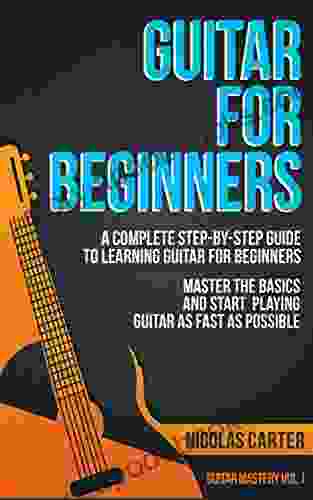Syllabus for Surviving Academia as a Woman of Color: A Guidebook for Success

As a woman of color in academia, you face unique challenges that your white male counterparts do not. You may be the only person of your race or gender in your department, and you may feel like you are constantly being scrutinized. You may also experience discrimination and bias, both overt and implicit.
4.3 out of 5
| Language | : | English |
| File size | : | 5806 KB |
| Text-to-Speech | : | Enabled |
| Screen Reader | : | Supported |
| Enhanced typesetting | : | Enabled |
| Word Wise | : | Enabled |
| Print length | : | 147 pages |
| X-Ray for textbooks | : | Enabled |
This guidebook is written to provide you with the knowledge and tools necessary to navigate and thrive in the often-difficult world of academia. It will cover topics such as:
- Finding mentorship and support
- Dealing with discrimination and bias
- Balancing your personal and professional life
- Negotiating for salary and benefits
- Publishing your work
- Getting tenure
This guidebook is not a magic bullet. It will not guarantee your success in academia. However, it will give you the information and support you need to increase your chances of success. If you are a woman of color who is serious about pursuing a career in academia, then this guidebook is for you.
Table of Contents
- Chapter 1: Finding Mentorship and Support
- Chapter 2: Dealing with Discrimination and Bias
- Chapter 3: Balancing Your Personal and Professional Life
- Chapter 4: Negotiating for Salary and Benefits
- Chapter 5: Publishing Your Work
- Chapter 6: Getting Tenure
Chapter 1: Finding Mentorship and Support
One of the most important things you can do to increase your chances of success in academia is to find a mentor. A mentor can provide you with guidance, support, and advice. They can also help you to navigate the often-complex world of academia.
There are many different ways to find a mentor. You can ask your professors, colleagues, or friends for recommendations. You can also attend conferences and workshops where you can meet potential mentors. Once you have found a few potential mentors, it is important to interview them to find the best fit for you.
When interviewing potential mentors, be sure to ask about their experience, their research interests, and their mentoring style. You should also ask about their commitment to diversity and inclusion. Once you have found a mentor, it is important to build a strong relationship with them. Be sure to communicate regularly and to keep them updated on your progress.
Chapter 2: Dealing with Discrimination and Bias
As a woman of color, you will likely experience discrimination and bias in academia. This can take many forms, such as being stereotyped, being passed over for promotions, or being paid less than your white male colleagues.
It is important to be aware of the different forms of discrimination and bias that you may experience. This will help you to recognize and respond to them effectively. There are a number of things you can do to deal with discrimination and bias. These include:
- Documenting the discrimination or bias
- Reporting the discrimination or bias to your supervisor or HR department
- Filing a complaint with the Equal Employment Opportunity Commission (EEOC)
- Joining a support group for women of color in academia
It is also important to remember that you are not alone. There are many other women of color who have faced discrimination and bias in academia. By working together, we can create a more inclusive and equitable environment for all.
Chapter 3: Balancing Your Personal and Professional Life
As a woman of color in academia, you may find it difficult to balance your personal and professional life. You may be expected to work long hours, and you may have to travel frequently for conferences and research. This can make it difficult to find time for your family, friends, and other personal commitments.
It is important to set priorities and to make time for the things that are important to you. This may mean saying no to some things in Free Download to make time for others. It is also important to find ways to make your work more efficient so that you can spend less time working and more time on your personal life.
Here are a few tips for balancing your personal and professional life:
- Set priorities and make time for the things that are important to you.
- Find ways to make your work more efficient.
- Delegate tasks to others when possible.
- Take breaks throughout the day.
- Make time for yourself to relax and recharge.
Chapter 4: Negotiating for Salary and Benefits
As a woman of color, you may be less likely to negotiate for salary and benefits than your white male colleagues. This is due to a number of factors, such as the stereotype that women are less assertive than men and the fear of being seen as "difficult."
It is important to be aware of the gender pay gap and to be prepared to negotiate for the salary and benefits that you deserve. Before you negotiate, it is important to do your research. You should know what the average salary is for your position and what benefits are typically offered.
Once you have done your research, you can start to prepare your negotiation strategy. You should decide what your minimum salary and benefits are and what you are willing to compromise on. You should also practice your negotiation skills so that you can feel confident when you are negotiating.
Here are a few tips for negotiating for salary and benefits:
- Do your research.
- Prepare your negotiation strategy.
- Be assertive but respectful.
- Be willing to compromise.
- Don't be afraid to walk away if you don't get what you want.
Chapter 5: Publishing Your Work
Publishing your work is essential for your success in academia. It allows you to share your research findings with the world and to build your reputation as a scholar. However, getting your work published can be a
4.3 out of 5
| Language | : | English |
| File size | : | 5806 KB |
| Text-to-Speech | : | Enabled |
| Screen Reader | : | Supported |
| Enhanced typesetting | : | Enabled |
| Word Wise | : | Enabled |
| Print length | : | 147 pages |
| X-Ray for textbooks | : | Enabled |
Do you want to contribute by writing guest posts on this blog?
Please contact us and send us a resume of previous articles that you have written.
 Book
Book Novel
Novel Page
Page Chapter
Chapter Text
Text Story
Story Genre
Genre Reader
Reader Library
Library Paperback
Paperback E-book
E-book Magazine
Magazine Newspaper
Newspaper Paragraph
Paragraph Sentence
Sentence Bookmark
Bookmark Shelf
Shelf Glossary
Glossary Bibliography
Bibliography Foreword
Foreword Preface
Preface Synopsis
Synopsis Annotation
Annotation Footnote
Footnote Manuscript
Manuscript Scroll
Scroll Codex
Codex Tome
Tome Bestseller
Bestseller Classics
Classics Library card
Library card Narrative
Narrative Biography
Biography Autobiography
Autobiography Memoir
Memoir Reference
Reference Encyclopedia
Encyclopedia Michail Sygar
Michail Sygar O Henry
O Henry M E Thomas
M E Thomas Trevor Fry
Trevor Fry M C Chagla
M C Chagla Tony Chin
Tony Chin Ray Hitchins
Ray Hitchins Nanette O Neal
Nanette O Neal Sarah Morgan
Sarah Morgan Steven Paul Winkelstein
Steven Paul Winkelstein Karina Wilde
Karina Wilde Willow Lung Amam
Willow Lung Amam Tomi Lahren
Tomi Lahren Sheryl Thies
Sheryl Thies Ryan Bow
Ryan Bow S Green
S Green Sally Engle Merry
Sally Engle Merry Landis Wade
Landis Wade Pei Chia Lan
Pei Chia Lan Stella Marie Alden
Stella Marie Alden
Light bulbAdvertise smarter! Our strategic ad space ensures maximum exposure. Reserve your spot today!

 Brady MitchellTrade and Innovation Within Global Networks: Unlocking the Power of Commerce...
Brady MitchellTrade and Innovation Within Global Networks: Unlocking the Power of Commerce...
 Colin RichardsonEver After Again: Hidden Worlds Unveil an Epic Tale of Magic and Adventure
Colin RichardsonEver After Again: Hidden Worlds Unveil an Epic Tale of Magic and Adventure Isaiah PowellFollow ·6.2k
Isaiah PowellFollow ·6.2k Leo MitchellFollow ·6.8k
Leo MitchellFollow ·6.8k Ivan TurnerFollow ·5.2k
Ivan TurnerFollow ·5.2k Bryce FosterFollow ·14.2k
Bryce FosterFollow ·14.2k Cole PowellFollow ·15.7k
Cole PowellFollow ·15.7k Milan KunderaFollow ·19.2k
Milan KunderaFollow ·19.2k Caleb LongFollow ·12.6k
Caleb LongFollow ·12.6k Jim CoxFollow ·15.5k
Jim CoxFollow ·15.5k

 Jorge Luis Borges
Jorge Luis BorgesUnlock Your Inner Musician: The Ultimate Guide to...
Embark on a Musical...

 Carlos Drummond
Carlos DrummondQuick Reference Guide To Percussion Instruments And How...
Unleash your inner rhythm with...

 Roberto Bolaño
Roberto BolañoUnlock Your Guitar Potential: The Ultimate Guitar Mastery...
Are you ready...

 Fred Foster
Fred FosterLooking for Lady Dee: A Punk Rock Mystery
By [Author's Name] Looking for Lady Dee is...

 Jacques Bell
Jacques BellJourney into the Mystical Realm of "Heaven Polly Alice...
In the tapestry of literature, where...

 Julio Ramón Ribeyro
Julio Ramón RibeyroSixty Years of Hits: A Musical Journey Through Time
Music has the...
4.3 out of 5
| Language | : | English |
| File size | : | 5806 KB |
| Text-to-Speech | : | Enabled |
| Screen Reader | : | Supported |
| Enhanced typesetting | : | Enabled |
| Word Wise | : | Enabled |
| Print length | : | 147 pages |
| X-Ray for textbooks | : | Enabled |








